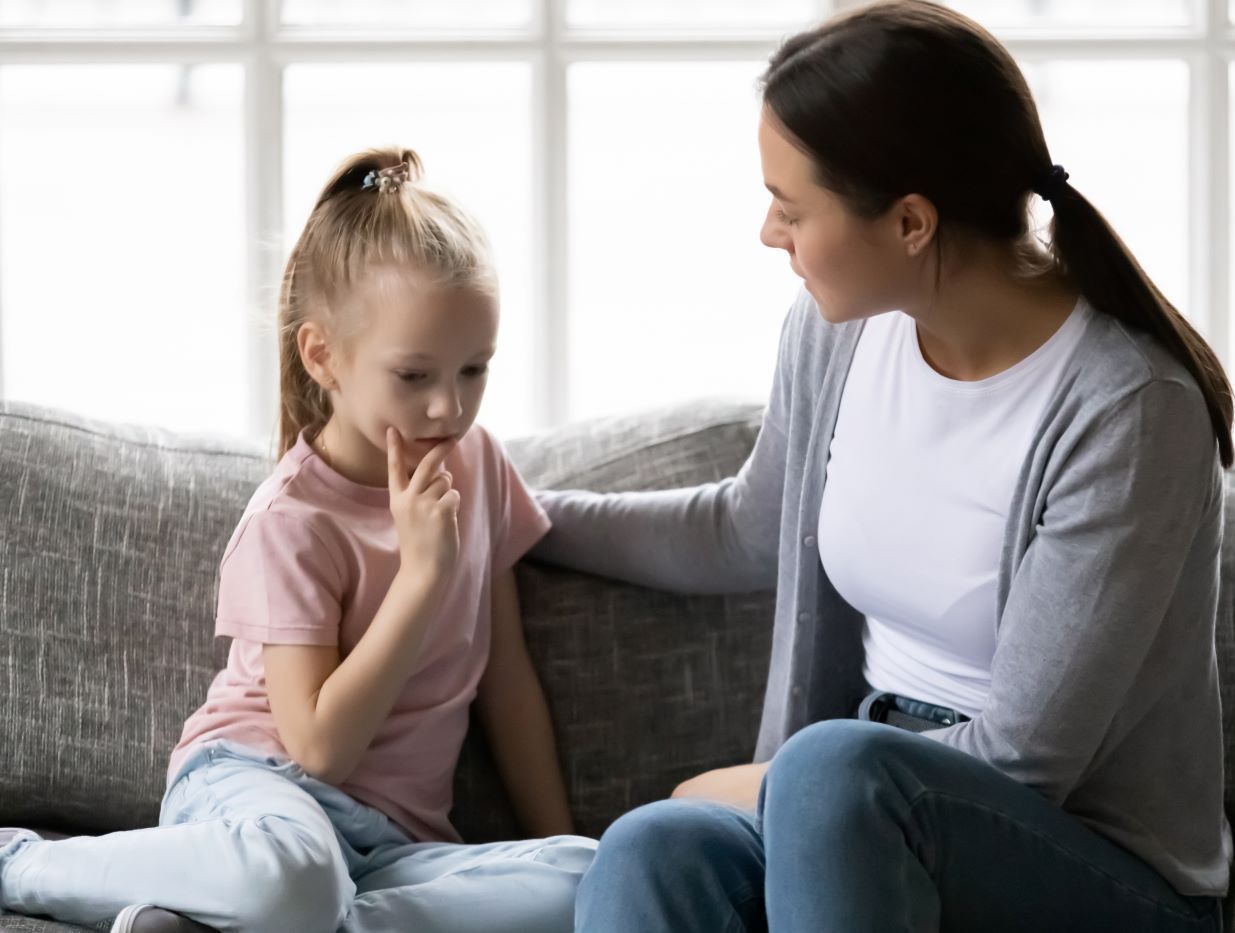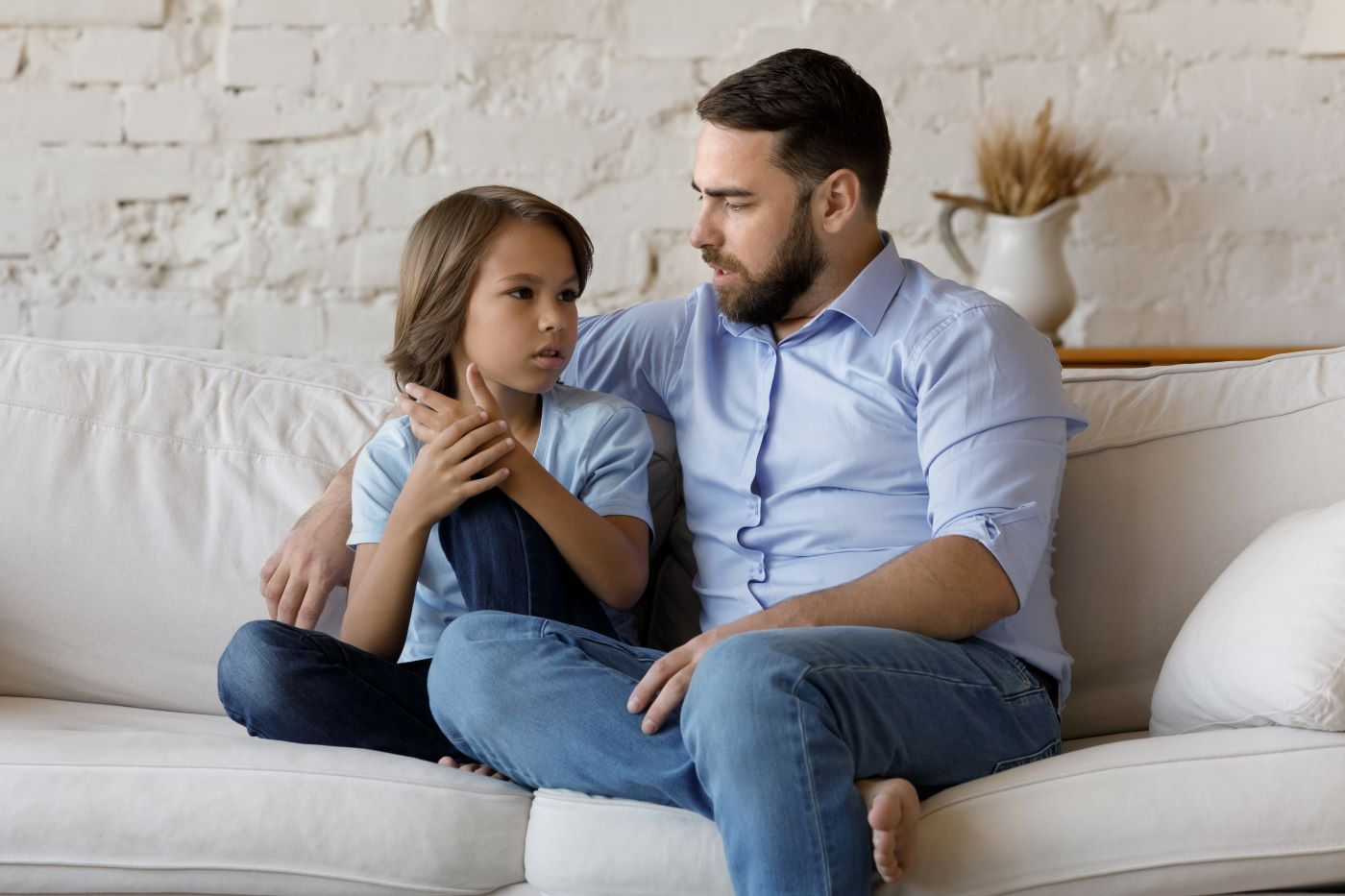HEaling In loss
Children & Grief
Children experience grief in unique ways, often influenced by their age, understanding of death, and emotional maturity. They may express their feelings through play, changes in behavior, or direct questions, and they need reassurance, honesty, and support to navigate their emotions in a safe and loving environment.

Guiding Children Through Grief
Death is a natural part of life, and children, even very young ones, should not be shielded from it. They are capable of understanding that death is an event and are often curious about it.
When explaining a loved one’s death, speak simply and truthfully, using language that matches the child’s age. First, ask what the child already knows, then gently clarify. For example: “Grandma’s heart got too tired and stopped working, so she died.”
Avoid vague or confusing phrases like “Grandma went to sleep” or “God took Grandma,” which may scare or mislead a child. Let children ask questions, but do not pressure them. Young kids might ask, “Where is Grandma now?” while older ones may have deeper questions about life and faith.
Always respond with honesty and in terms they can understand.

Ages 2 to 7
Up to 7 years of age, children see death mainly as a separation event. This may cause them to feel abandoned and scared. They may fear being alone, and may not want to sleep alone at night, or go to school.
Because children this young are usually not skilled at verbally expressing their feelings, they may “act out” instead, through behaviors such as temper tantrums, refusing to obey adults, or creating an imaginary life, accompanied by role-playing. Other behaviors, usually manifested by children between the ages of 2 and 5, may include eating, sleeping, toileting, or bed-wetting problems. Very young children under the age of 2 may suddenly refuse to talk, and become more irritable in general.
Ages 7 to 12
Children in this age group have begun to understand death as a permanent event. They may regard death as a more personal threat to their individual safety, develop a fear of dying themselves, or resort to “preventive” behaviors to “protect” themselves from death, such as aligning themselves with someone they think can protect them, or focusing on being “brave” or being “good”. Others may simply withdraw socially and/or emotionally from others.
Symptoms may include problems concentrating on schoolwork, trouble following directions, and difficulty in performing daily tasks.

Teens
While teenagers understand and perceive death in closely the same way as adults, they may express their grief differently. They may react in more dramatic ways, or adopt reckless behaviors in an attempt to “defy” death. Reckless driving, smoking, drinking alcohol, taking illegal drugs, or having unprotected sex may all be forms of “acting out” their anxieties and feelings of grief.
Thoughts of suicide may sometimes be present in a teen that is having trouble processing his or her loss. Warning signs of suicide in children and teens may include a preoccupation with death, having thoughts or openly talking about suicide, or giving away belongings.
Parents of teens who have lost a loved one should be aware of any changes in their child’s behavior, and should seek professional counseling immediately for the child if they feel their child may be in danger.


